Prostate Cancer
The prostate is a small walnut-shaped gland in the pelvis of men, located next to the bladder. It has various functions, such as producing the fluid that nourishes and transports sperm, secreting prostate-specific antigen (PSA), a protein that helps semen maintain its liquid state. It also serves as helping aid urine control.
Prostate cancer is the development of cancer cells in the prostate gland. The growth of cells in the prostate can be benign (not cancer) or malignant (cancer). Some cases of prostate cancers grow very slowly, while others are very aggressive and spread quickly to other organs. Prostate cancer cells can spread by breaking away from a prostate tumor. They can travel through blood vessels or lymph nodes to reach other parts of the body.
Prostate cancer is the second most common cancer worldwide. It is second only to skin cancer as the most common cancer affecting males. A current estimate is that one in every six men in the United States will be diagnosed with prostate cancer. In the US, there were an estimated 165,000 new cases of prostate cancer and nearly 30,000 deaths in 2018.
In modern medicine, several methods of treating prostate tumors are known, the choice of which depends on the stage of the pathological process, its degree of spread, as well as on individual indicators.
Benign Prostatic Hyperplasia results from the non-cancerous prostate growing larger, commonly in aging men. BPH causes symptoms by creating pressure on the bladder, urethra, or both.
I. Natural Supplements that prevent Prostate Cancer
I recommend prostate cancer prevention supplements for people at risk. Even if you do not have prostate cancer but fall under the risk group, these supplements can help in the prevention.
Prostate-specific antigen (PSA) is a tumor marker present in your blood. Normal levels of PSA are less than 4 ng/mL. If you have prostate cancer, PSA levels can become higher than 4 ng/mL. A person with PSA levels higher than 10 ng/mL is at least 50 percent more likely to have prostate cancer.
If you doubt whether or not to undergo a biopsy, have a family history of prostate cancer, ovarian cancer, or breast cancer, you should opt for preventive measures as early as possible.
The most important and basic supplements for prostate cancer are :
Alpinia zerumbet (Shell Ginger), Vitamin K2, IP6, Zinc, Selenium, Fish Oil.
| Alpinia zerumbet (Shell Ginger) | 2000 ~3000mg /day |
| Vitamin K2 | 100 mcg/day |
| IP6 | 1000 mg/day |
| Zinc | 20 ~30 mg/day |
| Selenium | 200 mcg/day |
| Fish Oil | 2000~3000 mg/day |
The above supplements are not only effective for prostate health but also to keep your cerebrovascular system young. Therefore, even if you are a woman or don’t suffer from any prostate problems, these supplements are recommended to improve your health.
If your Prostate-specific antigen (PSA) is higher than 10ng/ml or increasing after a 3-month intake of these supplements, please add one or two of the following. If feasible, you can take the above supplements with one of the below ones from the beginning.
- Pomegranate
- Saw palmetto
- Epilobium
- Green tea extract (epigallocatechin gallate)
- Pygeum
If your Gleason score is high, please do not rely on alternative natural supplements for prostate cancer alone. Surgery, radiation, or hormone therapy is crucial in such cases. Otherwise, metastasis can take place, making the condition worse.
However, natural supplements have their limits. They are not a panacea (cure-all). If metastasis has already emerged, you should immediately adapt to modern mainstream medicine. Please trust them too.
Also, whenever you take natural supplements, please consult your physician.
1) Alpinia zerumbet (Shell Ginger : JIPANG Ginger®)
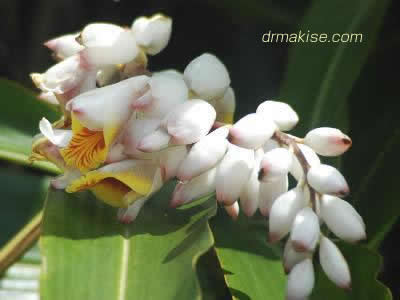
Alpinia zerumbet is its scientific name, and Shell Ginger is the common name. This is a perennial plant of the ginger family. But Shell Ginger is not the same as ordinary ginger. Don’t confuse it with ordinary ginger. Very much different in health benefits. It contains various phytochemicals such as the following.
Polyphenols
- Ferulic acid: It acts on the cell cycle of prostate cancer cells and promotes apoptosis of cancer cells.
(https://link.springer.com/article/10.1007/s13277-015-3689-3) - Quercetin: It suppresses androgen receptor function of prostate cancer cells.
(https://academic.oup.com/carcin/article/22/3/409/2733786) - Kaempferol stimulates the macrophage colony-stimulating factor of cancer cells.
(https://www.sciencedirect.com/science/article/pii/S0303720708000245#!)
These three polyphenols are just a few examples. Shell Ginger contains much more polyphenols that have a synergistic antioxidant effect.
One of the compounds present in shell ginger called beta-sitosterol is also effective against prostate cancer. Shell Ginger improves immunity and re-establishes hormonal and enzymatic homeostasis. All these beneficial qualities of Shell Ginger help to combat the carcinogenic cells responsible for prostate cancer and make it the best supplement for prostate cancer.
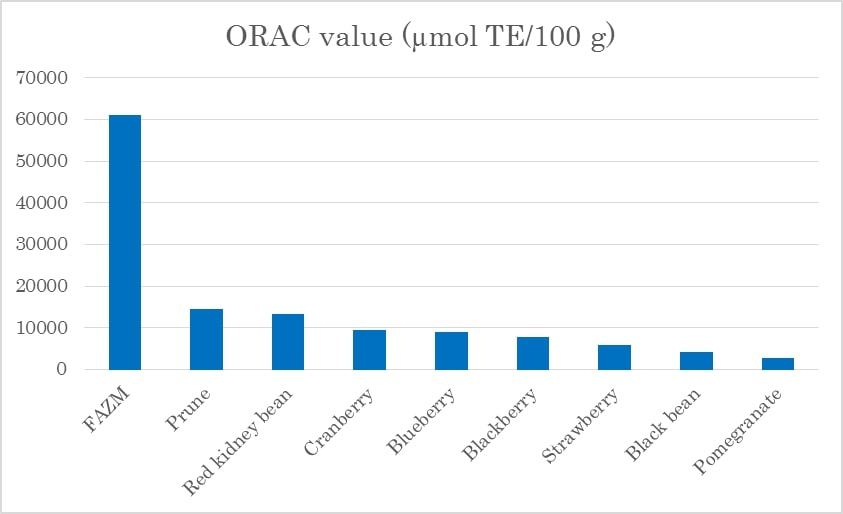
ORAC (Oxygen Radical Absorbance Capacity) FAZM (Fermented Powder of Leaves of Alpinia zerumbet-MAKISES: JIPANG Ginger®)
- Lactones : DDK (dihydro-5,6-dehydrokawain) & DK (5,6-dehydrokawain)
The most characteristic of Shell Ginger is that it contains a significant amount of DDK and DK.
- DDK and DK have interleukin-12 (IL-12) inhibitory activity.
Selective neutralization of IL-12 p40 monomer induces death in prostate cancer cells via IL-12–IFN-γ.
(https://www.pnas.org/content/114/43/11482.short) - DDK and DK inhibit directly PAK1 (RAC/CDC42-activated kinase 1) which is the major oncogenic kinase that is responsible for a wide variety of diseases such as cancers.
- DDK and DK have interleukin-12 (IL-12) inhibitory activity.
2) Vitamin K2

When varicocele (enlargement of the veins around the scrotum) occurs, free testosterone flows in the veins near the prostate 130 times more than usual. Testosterone itself is not the cause of prostate cancer. But, the metabolite produced from it, called dihydrotestosterone (DHT), is responsible. An enzyme called 5-α-reductase converts testosterone into DHT, making it the culprit for prostate cancer. DHT is also the cause of hyperplasia.
The smooth muscles of the venous wall media thicken and calcifies in varicocele. Vitamin K2 is necessary for the prevention of such events.
Vitamin K: the missing link to prostate health.
(https://www.ncbi.nlm.nih.gov/pubmed/25613567)
Caution: People taking warfarin should not take vitamin K2.
3) IP6
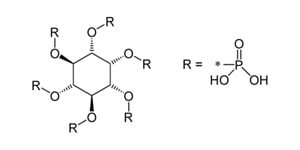
IP6 is an abbreviation for inositol hexaphosphate, also known as phytic acid. It is a compound where inositol is bound to phosphoric acid.
The study on IP6 in the treatment and prevention of kidney stones began about 60 years ago. Since then, the studies have shown beneficial effects such as reducing the risk of coronary heart disease, thrombosis, embolism, etc. IP6 improves platelet aggregation, improves lipids such as cholesterol, and prevents anemia.
One of the incredible effects of IP6 is its anti-cancer property. It is effective against colorectal cancer, breast cancer, prostate cancer, lung cancer, leukemia, and malignant melanoma.
Prostate Cancer and Inositol Hexaphosphate: Efficacy and Mechanisms
(http://ar.iiarjournals.org/content/25/4/2891.short)
4) Zinc

Zinc is critical to normal prostate function. The zinc concentration in the prostate is higher than that of any other soft tissue in the body, making zinc significant to normal prostate function. Men with prostate cancer have significantly less zinc than normal prostate tissue. A large amount of zinc is required to block the expression of androgen receptors in prostate cells to suppress the growth of cancer cells.
Zinc Inhibits Expression of Androgen Receptor to Suppress Growth of Prostate Cancer Cells
(https://www.mdpi.com/1422-0067/19/10/3062)
5) Selenium
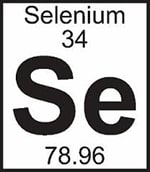
Selenium is required to make the glutathione peroxidase enzyme. Therefore, when selenium is deficient, there is a lack of defense against active oxygen and free radicals.
The selenium content of the toenails is an accurate indicator for determining selenium intake over time. In six and a half years study of 58279 men (55-69 years old) in the Netherlands
After 6.3 years of follow-up Toenail Selenium Levels and the Subsequent Risk of Prostate Cancer
(http://cebp.aacrjournals.org/content/12/9/866.short)
6) Fish Oil : EPA( eicosapentaenoic acid) & DHA( docosahexaenoic acid)
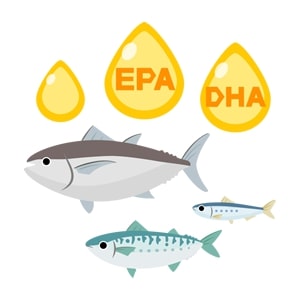
A study in Auckland, New Zealand, compared EPA and DHA-derived phosphatidylcholine levels in red blood cells of 317 prostate cancer patients and 480 non-prostate cancer patients. Those who consumed a lot of EPA and DHA had a lower incidence of prostate cancer.
Prostate cancer risk and consumption of fish oils: A dietary biomarker-based case–control study
(https://www.nature.com/articles/6690835)
EPA and DHA are abundant in fish oil. These two omega-3 unsaturated fatty acids act on the metabolic pathway of arachidonic acid.
The presence of excess arachidonic acid increases the enzyme 5-LOX (5-lipoxygenase), which stimulates the growth of prostate cancer. 5-LOX also converts arachidonic acid into a fatty acid called 5- hydroxyeicosatetraenoic acid (5-HETE) that inhibits apoptosis of cancer cells. Prostate cancer tissue contains 6-times more 5-LOX than normal prostate tissue and 2.2 times more 5-HETE.
Red meat is abundant in arachidonic acid. Safflower oil, sunflower oil, and rapeseed oil also metabolize arachidonic acid. Thus, avoid eating meat and using vegetable oil. Fish high in EPA and DHA is the best food to prevent prostate cancer.
*If Krill Oil is available, it is more recommended than Fish Oil because Krill Oil contains Astaxanthin.
7) Pomegranate

Pomegranate contains abundant phytochemicals such as ellagic acid, luteolin, and punicic acid. These phytochemicals have proven to be particularly effective for prostate cancers, prone to metastasis.
Luteolin, ellagic acid and punicic acid are natural products that inhibit prostate cancer metastasis
(https://academic.oup.com/carcin/article/35/10/2321/323353)
The intestinal bacterias metabolize ellagic acid into urolithin A. It induces apoptosis of prostate cancer in a p53-dependent and p53-independent way.
(https://www.ncbi.nlm.nih.gov/pubmed/31177307 )
In addition, urolithin A is effective against muscle loss due to aging called sarcopenia. The prevalence of prostate cancer increases with age (often at the age of sarcopenia). Hence, phytochemicals such as ellagic acid are very effective in the late 40s.
Pomegranate also has blood pressure and LDL lowering effects, making it a potent supplement against metabolic syndrome. Moreover, people with metabolic syndrome are more likely to have problems with the prostate.
8) Saw palmetto

Saw palmetto is a short palm native to North America. It gets its name because of jagged leaves like a saw. It is a popular and effective medicine used to reduce prostate enlargement.
People often have a misconception about testosterone. They consider it as the causative agent of prostate enlargement, which is inaccurate. If testosterone was the actual causality, why does prostate cancer or prostatic hyperplasia rarely occur at young ages when the testosterone levels are the highest?
The actual cause is dihydrotestosterone (DHT). And with aging, testosterone is converted by aromatase into estrogen that proliferates the prostate tissue leading to enlargement.
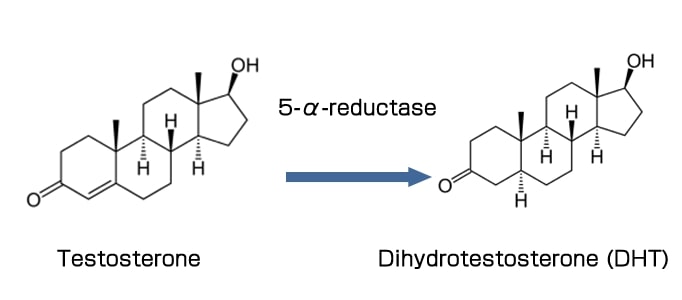
Saw palmetto extract inhibits the activity of 5-α-reductase of the prostate and prevents testosterone from being converted into dihydrotestosterone (DHT). DHT not only proliferates prostate tissue and causes prostate enlargement but also upregulates androgen and CXCR4 (a type of chemokine) receptor to promote prostate cancer metastasis. Therefore, this supplement is recommended especially for the patients on watchful waiting/active surveillance.
Fibroblast growth factor (b-FGF), produced from testicular stromal cells, promotes prostate enlargement. Saw palmetto extract suppresses the production of this factor.
Saw palmetto also blocks the effect of two enzymes: cyclooxygenase, and lipoxygenase, reducing the inflammatory eicosanoids produced by these two enzymes and improving prostatitis, urethritis, and cystitis. If you search for “saw palmetto prostate” on Google Scholar, more than 100 papers will appear in 2019 alone.
9) Epilobium (Fireweed)
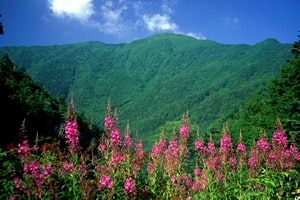
The main active ingredients of fireweed are Epilobium flavonoids and ellagitannins. Fireweed has anti-inflammatory, anti-proliferation, antioxidant, antibacterial, and anti-aging properties. Epilobium is also converted into urolithins A, B, and C by intestinal bacteria. Among which urolithin C shows the most robust anti-cancer effect.
Precisely, oenothein B, a macrocyclic ellagitannin, inhibits hormone-dependent prostate cancer growth and reduces PSA secretion. It inhibits 5-α-reductase and prevents testosterone from being converted to DHT (dihydrotestosterone). It has a similar mechanism of action as saw palmetto extract. In addition, it has a strong antibacterial effect against H. pylori and S. aureus.
Therapeutic Potential of Polyphenols from Epilobium angustifolium (Fireweed)
(https://www.ncbi.nlm.nih.gov/pmc/articles/PMC5045895/#R135)
10) Green tea extract (epigallocatechin gallate)
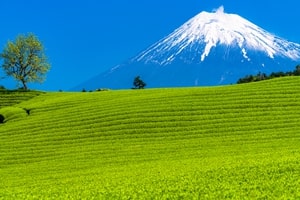
Japanese men have less prostate cancer than foreign men because they drink tea more often. It is not only relevant for prostate cancer but also lung cancer and colon cancer.
Green tea has abundant catechins classified into polyphenol flavonoid flavanols of four types: epicatechin, epigallocatechin, epicatechin gallate, and epigallocatechin gallate. Among them, epigallocatechin gallate (EGCG) is the most potent flavonoid.
EGCG is an ester of epigallocatechin and gallic acid. Green tea extract is the richest source of EGCG (approximately 60%). Epigallocatechin is about 20%, epicatechin gallate is about 14%, and epicatechin is about 6%.
The anticancer effect of EGCG has been studied extensively all over the world. It has a comprehensive function like promoting apoptosis of prostate cancer, blocking metastasis by inhibiting angiogenesis, and intercepting the androgen receptor.
11) Pygeum
The scientific name of pygeum is Prunus Africana, an evergreen tree that grows in an African mountain forest and reaches a height of 30-40m. Traditionally, in Africa, drugs are made from the bark of this tree and used for antipyretic, stomach pain, dysuria and malaria. In recent years, its effects on prostate enlargement and prostate cancer have attracted attention, and it has been used in many countries as a supplement to enhance prostate health.
The mechanism of action of pygeum is due to the inactivation of prostate androgen receptors by a compound called N-butylbenzene-sulfonamide (NBBS).
Pygeum also inhibits an enzyme called 5-LOX (5-lipoxygenase), which stimulates the growth of prostate cancer. This enzyme converts arachidonic acid into a fatty acid called 5-HETE (5-hydroxyeicosatetraenoic acid), which inhibits the apoptosis of cancer cells.
NBBS isolated from Pygeum africanum bark exhibits androgen antagonistic activity, inhibits AR nuclear translocation and prostate cancer cell growth
(https://link.springer.com/article/10.1007/s10637-009-9304-y)
Phytosterol Pygeum africanum regulates prostate cancer in vitro and in vivo
(https://link.springer.com/article/10.1007/s12020-007-0014-y)
II. Prostate cancer is one of the easiest cancers to cure.
Except for rare variants, prostate cancer is one of the easiest cancers to cure. This treatment success is primarily due to advances in surgery, radiotherapy, brachytherapy, and cryotherapy.
Most men develop prostate cancer as they get older for no known reason. But, if you have certain prostate cancer risk factors, taking these steps may help minimize your risk and catch the disease early:
- Get regular prostate screenings.
- Maintain a healthy weight.
- Exercise regularly.
- Eat a nutritious diet.
- Quit smoking.
Patients receiving chemotherapy can have serious side effects, affecting healthy cells and the immune system. Watchful waiting, also known as expectant management, is a reasonable strategy for men in their 70s or older, but for those under 70, that approach may be less appropriate. What is needed is more efficacious, safer, and noninvasive therapy for prostate cancer.
One theory explains that testosterone fuels prostate cancer. However, young males usually have more free testosterone than older ones but rarely suffer from prostate cancer.
The hypothalamic-pituitary-gonadal axis is also involved, which controls embryonic development, reproduction, and aging. Hypothalamus produces gonadotropin-releasing hormone (GnRH). Similarly, the anterior pituitary produces luteinizing hormone (LH) and follicle-stimulating hormone (FSH). LH stimulates the production of testosterone and estrogen in testicular Leydig cells.
Two enzymes 5-lipoxygenase (5-LOX) and aromatase, further magnify the prostate cancer concepts. 5-LOX is essential in synthesizing leukotrienes from arachidonic acid. It converts arachidonic acid into 5-hydroperoxy eicosatetraenoic acid (5-HPETE), which spontaneously reduces to 5-hydroxyeicosatetraenoic acid (5-HETE).
5-HETE is a fatty acid that blocks the death of prostate cancer cells. Hence, excess estradiol, converted from testosterone by aromatase, can become carcinogenic and plays a role in prostate cancer progression.
For the treatment and prevention of prostate cancer, novel therapies must fulfill various roles, including enhancing immunity, regulating hormone dysregulation, and enzymatic activity. A supplement already exists that can address these functions- Shell Ginger.
For centuries, in Japan, the leaves of Shell Ginger have been consumed in Okinawa in the preparation of tea and traditional foods. And its benefits have markedly been endowed to the health and longevity of Okinawan people. Shell Ginger (Alpinia zerumbet) improves immunity and re-establishes hormonal and enzymatic homeostasis.
In the past 30 years, I have traveled to more than 85 countries in my quest to discover natural substances that can improve human health. This endeavor led me to identify the most effective and safest herb, JIPANG Ginger, containing the main active ingredient as the fermented leaves of Shell Ginger, for treating prostate cancer.
Plants get energy through the process called photosynthesis. In the process, plants release reactive oxygen species. The stronger the sunlight is, the more free radicals are produced, making plants adopt compensatory mechanisms for protecting their leaves and stalks.
My research team did a study on Shell Ginger grown in tropical soil. We found out that the plant contained dozens of beneficial phytochemicals. Some polyphenols present in Shell Ginger are ferulic acid, chlorogenic acid, quercetin, kaempferol, epicatechin, catechin, etc.
These polyphenols act synergistically to become powerful natural antioxidants and have the ability to protect normal human cells from cancers.
III. Caution
Do not take other vitamins with my anti-prostate cancer formula.
Cancer cells are by nature quite intelligent because of their capability to escape from capture and not respond to the immune system. These cells are so competent that they can become resistant to traditional therapies and spread to other parts of the body. They can even transmutate into different types of tumors.
Cancer cells are very opportunistic. One of their ways to trick the body is by using vitamins and minerals that patients consume to suppress the progression of cancer cells. Instead, these cells use the nutrients to grow and metastasize. Hence, you should avoid taking excess supplements because tumor cells can use them as expansion fuel and backfires the body.
For example, according to the study of Jane C. Figueiredo, Ph.D., of the University of Southern California, Los Angeles (Folic Acid and Risk of Prostate Cancer: Results From a Randomized Clinical Trial), folic acid supplementation was associated with an increased risk of prostate cancer.
Vitamin C is no exception. The risk exists that cancer cells utilize vitamin C for growth. Thus, the mega-dose vitamin C therapy is quite controversial, and its benefits are debatable.
People have questioned me why my prescription does not contain lycopene. Lycopene is, for long, praised as a natural and effective remedy for prostate cancer. It is only achievable if ingested from whole tomatoes. The concentrated extract of lycopene, on the other hand, is dangerous, similar to β-carotene supplementation. Supplemental β-carotene is also associated with an increased risk of prostate cancer, cardiovascular disease, and overall mortality in people who smoke cigarettes. The possibility exists that this danger extends to non-smokers.
Dr. Makise – After following your protocol of JIPANG Ginger and flax for 2 months, my PSA has fallen from 62 to 29. Hopefully, the next two months will have it down to 0. I’m down to my last bottle of JIPANG Ginger. I called your number and they said they were out of the product. Could you see that I get some more before I run out? Thank you.
I used the JIPANG Ginger to help me survive prostate cancer. It worked very well. I am now cancer-free. I know of other people that are now contacting me with inoperable forms of terminal cancer. I was hoping they would be able to purchase the ginger to start taking and at least give them some hope. Please let me know if they will be able to purchase directly from you. Thank you.
The information about alternative natural medicine on this website is intended only for educational purposes and reports of Dr. Makise’s success in treating and, in some cases, curing prostate cancer. However, the statements made in this article have not been evaluated by the FDA. The information on this website is not intended to prevent, diagnose, treat, or cure any condition, including prostate cancer. This is an informational site only.
Always seek the advice of your physician or another qualified health provider with any questions you may have regarding a medical condition. Never disregard professional medical advice or delay seeking it because of anything you have read on this website.
This website and its contents are provided as is, with no warranties of any kind. We assume no liability or responsibility for any errors or omissions in the content of this website. Any losses or damages arising from the use of the content provided on Dr.Makise’s website are solely the responsibility of the users of this website. Additionally, the information accessible via our site may not be entirely accurate, complete, or up-to-date.
Copyright: No reproduction or republication without written permission.
